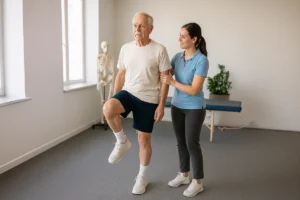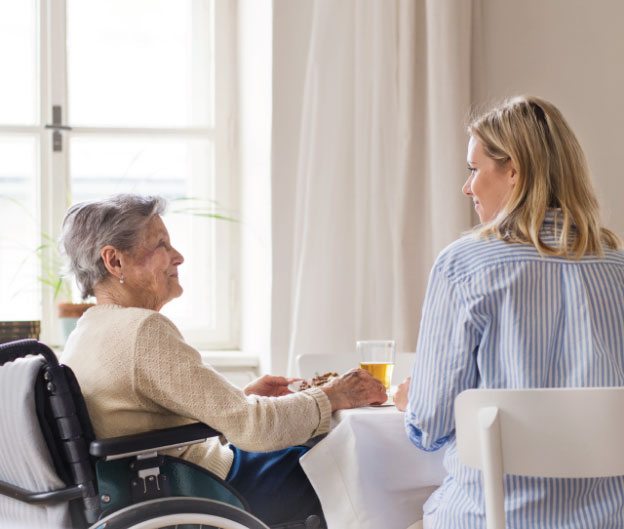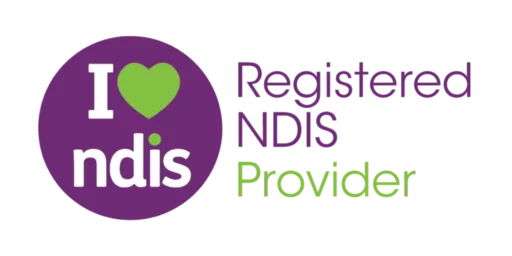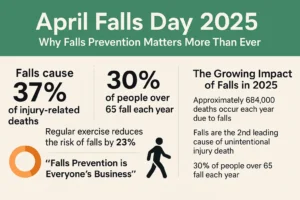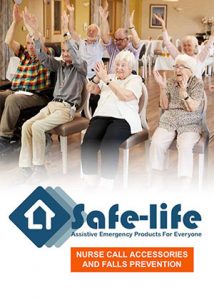10 Essential Skills in Aged Care Every Caregiver Must Master
The world’s population is ageing rapidly. By 2050, every sixth person will be over 65 years old. This demographic shift means skilled caregivers will be more valuable than ever.
Aged care work goes beyond simple procedures and tasks. Caregivers need a special mix of technical expertise and emotional intelligence. Your skills can make a real difference to your residents’ lives – from helping with daily activities to managing medications and providing emotional support.
Looking to excel in this meaningful field? You’re at the right place. We have put together the 10 skills every caregiver needs to become skilled at. These range from effective communication to significant clinical observation abilities. These capabilities will boost your confidence and help you deliver the best possible care to your residents.
Communication mastery is the life-blood of exceptional aged care services. Research demonstrates that good clinical communication substantially improves patient experience and their participation in care [1].
Effective Verbal Communication Techniques
The quality of care you provide depends on your verbal communication skills. Residents should be addressed by their preferred names instead of generic terms like ‘dear’ or ‘love’ [2]. Here’s what you need to do while speaking with residents:
- Use clear, simple language without medical jargon
- Speak at a measured pace with appropriate pauses
- Check if they understand what you’re saying
- Tell them what you’re going to do before you do it
- Let them make their own care decisions
Non-verbal Communication Skills in aged care
Your words carry as much weight as your body language and non-verbal cues. Studies show that proper eye contact and positioning yourself at eye level with residents substantially improves their comfort and understanding [1]. Your facial expressions, posture, and gestures often convey more meaning than words [2].
Communication with Families and Healthcare Teams
The continuity of care depends on effective information sharing between care team members. The Aged Care Quality Standards require clear communication of decisions and accurate, timely information to residents and their families [3].
Healthcare teams need structured approaches to share high-quality information about residents, particularly during shift changes [3]. You should document and communicate:
- Changes in residents’ conditions
- Updated care priorities
- New risks or incidents
- Transition of care information
Good clinical governance needs structured, formal communication mechanisms and constructive working relationships between professional groups [3]. These communication skills will help you deliver person-centred care that supports your residents’ needs and priorities.

Physical care skills are the foundations of your aged care expertise. These skills in aged care affect the safety and comfort of both you and your residents. Research shows that manual handling is essential in aged care work, and you need to pay attention to prevent injuries [4].
Safe Manual Handling Procedures
The way you handle manual tasks affects workplace safety. Studies show that proper training and careful planning can reduce injury risks for caregivers and residents [4]. Here are the key safety points:
- Review risks before starting any physical task
- Use mechanical aids and assistive devices whenever possible
- Keep correct posture during lifting activities
- Work with colleagues for complex transfers
- Document and report safety concerns
Personal Care Assistance Skills
Personal care needs both technical expertise and compassionate support. You should approach residents from the front and maintain eye contact to avoid startling or confusing them [5]. It helps to employ major muscle groups during physical assistance. Always explain your actions before you perform them [5].
Mobility Support Techniques
Mobility support is vital for residents to maintain their independence. Research shows that changes to the environment, like proper seated heights for sit-to-stand transfers, can improve mobility outcomes [6]. Here’s what you need to know about transfers:
Equipment Selection: Pick the right mobility aids based on individual needs. Transfer belts, slide sheets, and mechanical hoists serve specific purposes in safe resident handling [4].
Transfer Technique: Your position matters – use your leg muscles instead of your back for support. Studies show that proper body mechanics lower the risk of caregiver injury [7].
Environmental Considerations: Clear space is needed for movement, so arrange furniture for safe transfers [6]. Beds with adjustable heights help you maintain better postures while supporting residents [6].
Note that resident participation in mobility activities, where appropriate, helps them stay independent and reduces the help needed from care staff [6].
Emotional intelligence is the life-blood of aged care that affects the quality of care you provide. Research shows that staff with higher emotional intelligence deliver better psychological wellbeing and improved patient care [8].
Understanding Emotional Needs
Recognising and responding to emotional needs is vital in aged care. Studies show older adults who lack emotional support face twice the risk of negative health outcomes [9]. Here’s what you need to focus on:
- Reading non-verbal cues and body language
- Spotting signs of isolation or anxiety
- Protecting residents’ identity and dignity
- Following cultural and personal priorities
- Staying emotionally aware during daily interactions
Building Trust and Rapport
Strong connections with residents need genuine involvement and steady support. Research proves that human bonds help deliver care that meets residents’ needs and creates better outcomes for caregivers and residents alike [10]. Genuine and honest communication builds respect – this forms the foundation of trust [10].
Managing Emotional Situations
The way you handle emotionally charged situations directly shapes resident well-being. Studies confirm that staff with emotional intelligence provide better quality patient care and build positive relationships [8]. Key strategies to manage emotional situations include:
Person-centred care starts with understanding each resident’s unique emotional responses [11]. Different residents show their psychological or emotional distress in unique ways [11]. You can show empathy while maintaining professional boundaries in challenging situations.
Research proves that staff with higher emotional intelligence handle workplace challenges better and achieve improved care outcomes [8]. Your emotional intelligence skills for aged care boost your professional growth and enhance the quality of life for those in your care.
Time management in aged care needs a strategic approach to balance multiple responsibilities and deliver quality care. Research shows that well-laid-out routines help reduce anxiety for caregivers and their residents [12].
Prioritising Care Tasks
The ability to prioritise care tasks is vital to deliver effective aged care services. The CURE hierarchy offers a systematic approach to task prioritisation [13]:
- Critical needs: Need immediate attention (medical emergencies)
- Urgent needs: Important but not life-threatening right away
- Routine needs: Daily care activities
- Extras: Additional tasks that improve care quality
Studies show that proper prioritisation improves patient care and reduces caregiver’s stress levels by a lot [14].
Managing Multiple Residents
Effective delegation becomes essential when caring for multiple residents. Research shows that the Five Rights of Delegation improves care quality [14]:
| Delegation Right | Key Consideration |
|---|
| Right Task | Must fall within delegatee’s scope |
| Right Circumstance | Appropriate timing and situation |
| Right Person | Showed skills in the area |
| Right Direction | Clear communication of expectations |
| Right Supervision | Ongoing monitoring and feedback |
Creating Efficient Care Routines
Consistent routines help improve care delivery efficiency. Studies show that well-planned routines increase both caregiver’s efficiency and resident’s satisfaction [12]. Key strategies include:
Well-laid-out daily schedules incorporate essential tasks while allowing flexibility for unexpected situations [15]. Digital calendars and care management systems can streamline your workflow and ensure you don’t miss important tasks [15].
Note that you should assess and adjust your routines as resident needs change [12]. Research shows that flexible routines that adapt to changing circumstances create better outcomes for caregivers and residents [12].
Cultural diversity stands as a vital skill in aged care. Research shows that over 90% of older people consider themselves religious or spiritual [16]. Knowing how to provide culturally competent care directly affects resident satisfaction and wellbeing.
Cultural Awareness in Care
Cultural safety extends beyond simple understanding. It demands an environment where everyone feels respected and supported [17]. Studies show that cultural awareness training substantially improves care outcomes and resident satisfaction [18]. You can boost your cultural awareness by:
- Learning about different customs and traditions
- Avoiding stereotyping or making assumptions
- Recognising your own cultural biases
- Adapting care practises to meet individual needs
- Involving residents’ cultural communities
Religious and Cultural Considerations
Religious beliefs shape aged care substantially. Research reveals that religion provides the largest source of social support outside family for older adults [16]. These key aspects matter when providing care:
| Religious Aspect | Care Consideration |
|---|
| Daily Practises | Prayer times, dietary requirements |
| Cultural Customs | Gender priorities, privacy needs |
| End-of-Life Care | Specific customs and traditions |
| Family Involvement | Decision-making processes |
Inclusive Care Practises
A proactive approach works better than a reactive one in inclusive care [19]. Research demonstrates that culturally safe care combines understanding a resident’s culture, acknowledging differences, and actively respecting these differences in planning and delivering care services [19].
Practical Implementation Customised care plans should respect cultural and linguistic needs [17]. This approach incorporates traditional practises, dietary priorities, and ensures access to interpreters when needed. Studies show that staff members who understand residents’ languages help improve care outcomes substantially [17].
Note that cultural safety stems from the resident’s experience of care [19]. Developing your cultural competency skills creates an environment where residents feel valued, understood, and respected in their cultural identity.

Clinical observation skills are the foundations of quality aged care. Research shows appropriate monitoring can prevent up to 30% of adverse events in healthcare settings [20]. Knowing how to observe and document changes in residents’ conditions affects their wellbeing.
Health Monitoring Skills in aged care
Your core monitoring duties involve tracking vital physiological parameters. Studies show that staff should take observations at least once per eight-hour shift for most patients in acute care settings [20]. These parameters need monitoring:
| Parameter | What to Monitor |
|---|
| Respiratory | Rate and oxygen saturation |
| Cardiovascular | Heart rate and blood pressure |
| Temperature | Body temperature |
| Consciousness | Level of awareness |
| Mobility | Changes in movement ability |
Identifying Changes in Condition
Quick recognition of subtle changes can affect resident outcomes by a lot. Research shows that functional changes can signal health issues that need prompt medical evaluation [21]. Key indicators to watch for include:
- Changes in appetite or fluid intake
- Alterations in mental status or behaviour
- New onset of pain or discomfort
- Changes in mobility or balance
- Variations in normal vital signs
Documentation and Reporting
Clear documentation helps maintain continuity of care. Studies show that precise, accurate documentation improves communication between healthcare professionals and enhances resident outcomes [22]. Your documentation should include:
Progress notes that detail important changes in health status [22]. These observations are part of the legal documentation aged care providers need and enable effective communication about residents’ conditions [22].
Note that abnormal physiological observations should stand out in observation charts [20]. Use well-laid-out tools and tracking systems to document changes over time. This ensures clear triggers when care needs escalation [20].
The way you handle crisis situations in aged care can mean the difference between good and bad outcomes. Research shows aged care providers need complete emergency and disaster management plans to keep residents safe [23].
Emergency Response Skills
Your emergency response needs to line up with standard protocols. Studies show aged care facilities must be ready for emergencies of all types, from medical crises to natural disasters and facility problems [24]. Here’s a framework that breaks down different emergency types:
| Emergency Type | Primary Response Actions |
|---|
| Medical Crisis | Immediate first aid, contact emergency services |
| Natural Disasters | Follow evacuation protocols, ensure resident safety |
| Facility Issues | Implement contingency plans, maintain essential services |
De-escalation Techniques
Your de-escalation skills are vital when behavioural crises happen. Research shows good de-escalation can stop situations from turning into serious incidents [25]. These steps help:
- Remove immediate threats and create physical space
- Position yourself at or below eye level
- Use calm, reassuring tones
- Maintain appropriate body language
- Offer support and understanding
Problem-solving in Critical Situations
Resident outcomes depend on your problem-solving abilities during crises. Studies show critical thinking in emergencies needs systematic and logical approaches [26]. Essential components of crisis problem-solving include:
Quick yet informed decisions keep residents at the heart of all actions [23]. Research highlights the need to test your crisis management framework through regular emergency drills and scenarios [27].
Note that documenting all crisis events helps improve future responses [24]. Clear communication channels during emergencies are essential, especially when working with emergency services and healthcare teams [23].
Safe medication management is a vital responsibility in aged care. Studies show that all but one of these residents have at least one medication-related problem [28]. Your expertise in this area will affect resident safety and wellbeing directly.
Medication Administration Skills
Your role demands strict adherence to medication safety protocols. Research shows that 30% of hospital admissions for patients over 65 relate to medication issues [29]. These administration skills are vital:
- Verifying medication orders and resident identity
- Following the “rights” of medication administration
- Documenting administration accurately
- Understanding scope of practise limitations
- Maintaining proper storage conditions
Understanding Common Medications
A solid grasp of frequently prescribed medications helps you provide better care. Studies indicate that medication changes during hospitalisation can increase prescribing error risks [29]. Common medications in aged care settings include:
| Medication Type | Primary Use |
|---|
| Antihypertensives | Blood pressure management |
| Antidiabetics | Blood sugar control |
| Anticoagulants | Blood clot prevention |
| Analgesics | Pain management |
Monitoring Side Effects
Your observation skills help identify medication-related issues effectively. Research indicates that older adults face higher risks of adverse reactions due to physiological changes [29]. Key monitoring responsibilities include:
Changes in vital signs and behaviour might indicate adverse reactions. Studies show that frail older people react more strongly to medications [29]. You need to assess swallowing ability and crushing requirements to ensure safe administration [30].
Medication monitoring requires continuous collaboration with healthcare teams. Research demonstrates that well-laid-out medication reviews can substantially reduce adverse events [30].
Professional ethics in aged care goes beyond simple rules and regulations – it builds a foundation of trust and respect. The Aged Care Quality Standards highlight that aged care services must comply with eight simple standards to deliver quality care [31].
Understanding Care Standards
Your role demands following the Aged Care Quality Standards that define expectations for safe, quality care delivery. These standards came into effect in 2019 to show what good care should look like [31]. Quality assessors visit services regularly to assess care standards, and services must improve within set timeframes if they fall short [32].
Maintaining Professional Boundaries
Professional boundaries shape the therapeutic relationship between you and your residents. Studies show that 66% of nursing leaders see flirting between patients and care workers as a violation of professional boundaries [33]. Here are the key boundaries to think about:
| Boundary Type | Professional Practise |
|---|
| Physical | Appropriate touch only for care tasks |
| Emotional | Maintain therapeutic relationships |
| Financial | No gifts or loans accepted |
| Social | Avoid personal relationships |
Privacy and Confidentiality
Your steadfast dedication to privacy and confidentiality builds trust. The Privacy Act sets strict rules for handling personal information [34]. The privacy principles you need to follow include:
- Collect only necessary information for care delivery
- Secure storage of personal and health information
- Get consent before sharing information
- Report privacy breaches right away
- Keep all communications confidential
Documentation Requirements Research shows that proper documentation helps maintain privacy standards [35]. You must share sensitive information only with authorised personnel and store records securely, whether they’re electronic or physical [35].
Note that breaking professional boundaries or privacy requirements can lead to serious consequences, including possible bans from aged care work [36]. The way you uphold professional ethics directly affects the quality and safety of care delivery.

Digital literacy stands as a vital skill in aged care today. Studies reveal that care facilities using digital systems tend to use more technology as time progresses [37]. The way you handle digital tools shapes the quality of care you deliver.
Care Management Systems
Digital platforms form the backbone of modern aged care resident information management. Care management systems let you store and access important health details, from chronic conditions to medication information, which leads to well-coordinated care [38]. These systems offer:
| Traditional Method | Digital System Benefits |
|---|
| Paper Records | Immediate Updates |
| Manual Tracking | Automated Monitoring |
| Physical Storage | Secure Digital Access |
| Delayed Updates | Instant Communication |
Electronic Documentation
Switching from paper to electronic documentation saves about three days of administrative time each month [39]. Basic digital documentation skills include:
- Accurate data entry at point of care
- Quick incident reporting
- Digital care plan updates
- Electronic health record management
- Secure information sharing
Technology in Modern Care
Technological advances have altered the aged care landscape. Staff members who get proper technology training show better acceptance and use of new systems [37]. Your digital skills should cover emerging tools like telehealth appointments and electronic health records [37].
Research shows that aged care workers with English as their second language or limited tech experience might feel unsure about digital systems at first [37]. Proper training and support help overcome these challenges effectively. Most organisations now know that ongoing digital literacy training plays a vital role, particularly since Certificate III qualifications often skip complete digital skills training [37].
Strong digital tool skills boost both efficiency and resident safety. Digital care systems help minimise errors and protect people receiving aged care from harm [38]. Using technology in your daily care tasks creates a more responsive and efficient care setting.
Comparison Table
| Skill | Key Components | Main Goal | Implementation Strategies | Effect on Care Quality |
|---|
| Communication Mastery | Verbal, non-verbal, and team communication | Clear exchange of information | Simple language, right pace, organised ways to share information | Better patient experience and care participation |
| Physical Care Expertise | Manual handling, personal care, mobility support | Safe handling of residents | Equipment aids, correct posture, shared approaches | Lower injury risks and better resident comfort |
| Emotional Intelligence | Reading needs, building trust, managing emotions | Mental wellbeing | Spotting non-verbal signs, real connection, clear boundaries | Better mental health and care results |
| Time Management | Task ranking, multiple resident care, daily routines | Quick care delivery | CURE hierarchy, Five Rights of Delegation, planned schedules | Less anxiety and faster care |
| Cultural Competency | Cultural awareness, faith needs, inclusive care | Safe cultural space | Understanding customs, avoiding bias, flexible care | Higher resident satisfaction |
| Clinical Observation | Health checks, condition changes, record keeping | Quick change detection | Regular vital checks, change tracking, proper records | Stops up to 30% of bad events |
| Crisis Management | Emergency response, calming situations, solving problems | Ready for emergencies | Protocol use, staying calm, step-by-step methods | Keeps residents safe in emergencies |
| Medication Management | Giving meds, drug knowledge, monitoring | Safe med handling | Following med “rights”, proper records, storage control | Fewer medication issues |
| Professional Ethics | Care standards, boundaries, privacy | Ethical care | Quality standard use, clear limits, privacy protection | Builds trust and respect |
| Digital Literacy | Care systems, documentation, tech use | Digital skills | Electronic records, system use, data entry | Better speed and fewer mistakes |
Conclusion – Essential skills in aged care
Becoming skilled at these ten aged care skills demands dedication and ongoing learning. The positive effects on resident care make all the effort worthwhile. Caregivers who excel in these areas deliver better care outcomes and find more satisfaction in their work.
You should evaluate your current strengths and find areas that need improvement. Pick one skill at a time and start with fundamental abilities like communication and physical care expertise. Each interaction with residents gives you opportunities to enhance these capabilities while creating meaningful changes in their lives.
Your role as an aged care worker goes beyond caregiving – you become a vital part of your residents’ support network. Research shows that skilled caregivers substantially improve their residents’ wellbeing and safety. Your consistent development and practical use of these core skills will help you build a fulfilling career while providing excellent care to those who need it most.
References
[1] – https://www.health.vic.gov.au/older-people-in-hospital/assessment-communication-and-person-centred-practise/communication
[2] – https://www.carestaffnursing.com.au/blog/2020/09/how-to-effectively-communicate-to-residents-in-the-aged-care-sectorf557c634
[3] – https://www.ariia.org.au/knowledge-implementation-hub/clinical-governance/clinical-governance-themes/communication-and-relationships
[4] – https://sageeducation.edu.au/the-importance-of-manual-handling-in-aged-care-sage/
[5] – https://www.caregiver.org/resource/hands-skills-caregivers/
[6] – https://pmc.ncbi.nlm.nih.gov/articles/PMC6284187/
[7] – https://www.centreforwhs.nsw.gov.au/research/musculoskeletal-disorders-from-patient-handling/musculoskeletal-disorders-in-patient-handling
[8] – https://bmcpsychology.biomedcentral.com/articles/10.1186/s40359-021-00593-8
[9] – https://stowellassociates.com/what-are-the-emotional-needs-of-the-elderly/
[10] – https://www.agedcarequality.gov.au/worker-guidances/person
[11] – https://www.agedcareessentials.com.au/news/aged-care-sirs-how-to-manage-psychological-and-emotional-incidents
[12] – https://familycaregiversonline.net/benefits-of-a-routine-for-family-caregivers/
[13] – https://www.ncbi.nlm.nih.gov/books/NBK598386/
[14] – https://www.ausmed.com.au/learn/articles/time-management-for-nurses
[15] – https://kindercaring.com.au/home-care-packages/time-management-for-home-care-workers/
[16] – https://www.msdmanuals.com/professional/geriatrics/social-issues-in-older-adults/religion-and-spirituality-in-older-adults
[17] – https://www.tricare.com.au/creating-cultural-safety-and-sensitivity-in-aged-care-why-its-important-and-how-we-do-it/
[18] – https://www.safetyandquality.gov.au/standards/national-safety-and-quality-health-service-nsqhs-standards/resources-nsqhs-standards/user-guide-aboriginal-and-torres-strait-islander-health/action-121-improving-cultural-competency
[19] – https://www.agedcarequality.gov.au/sites/default/files/media/Guidance%26Resources_Standard_1_v4.pdf
[20] – https://www.safetyandquality.gov.au/sites/default/files/migrated/Low-res-PDF-Essential-element-1-observations.pdf
[21] – https://hign.org/consultgeri/resources/symptoms/sudden-change-function
[22] – https://www.centricminds.com/articles/managing-and-tracking-documentation-in-an-aged-care-environment
[23] – https://www.agedcarequality.gov.au/sites/default/files/media/topic-guide-5-crisis-management-and-business-continuity.pdf
[24] – https://www.health.gov.au/topics/aged-care/providing-aged-care-services/training-and-guidance/service-continuity-and-emergency-events-in-aged-care
[25] – https://teepasnow.com/blog/teepa-snows-10-steps-to-de-escalating-a-dementia-care-crisis/
[26] – https://www.acn.edu.au/thought-leadership/critical-thinking
[27] – https://www.agedcarequality.gov.au/strengthened-quality-standards/organisation/emergency-and-disaster-management
[28] – https://www.psa.org.au/advocacy/working-for-our-profession/medicine-safety/aged-care/
[29] – https://www.health.vic.gov.au/older-people-in-hospital/medication-0
[30] – https://www.agedcarequality.gov.au/evidence-mapping/medication-management
[31] – https://www.health.gov.au/topics/aged-care/providing-aged-care-services/quality-obligations-for-providers
[32] – https://www.myagedcare.gov.au/aged-care-quality-standards
[33] – https://careacademy.com/blog/tips-on-maintaining-professional-boundaries-for-caregivers/
[34] – https://www.agedcarequality.gov.au/privacy-policy
[35] – https://shiftcare.com/blog/what-you-need-to-know-about-privacy-and-confidentiality-in-aged-care
[36] – https://www.agedcarequality.gov.au/workers/code-conduct-workers
[37] – https://www.ariia.org.au/knowledge-implementation-hub/technology-in-aged-care/human-factors-evidence-themes/staff-technology-training
[38] – https://www.ariia.org.au/knowledge-implementation-hub/technology-in-aged-care/types-technology-aged-care/care-management-system-technology
[39] – https://personcentredsoftware.com/en-au/guide-to-aged-care-software
